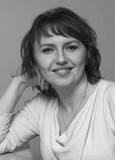DYNAMICS OF MOTIVATION FEATURES TO PHYSICAL CULTURE AMONG STUDENTS OF NON-SPORTS SPECIALTIES
Keywords:
motivation for physical culture, motivation for success, motivation for avoiding failures, socio-emotional motive, motive for physical self-affirmation.Abstract
Objective of the study was to reveal the dynamics of the peculiarities of motivation for physical education of students-psychologists in the process of studying at the university.
Methods and structure of the study. The experiment was carried out with the participation of students of the Faculty of Psychology of the National Research University "BelSU" in two stages: in 2019 at the 1st year and in 2022 at the 4th year among undergraduate students. In total, 98 1st year students took part in the study in 2019 and 97 4th year undergraduate students in 2022. The main methods were: the method of diagnosing a personality for motivation for success and avoiding failures by T. Ehlers, the method "Motives for playing sports" by A.V. Shaboltas, as well as the questionnaire "Attitude towards physical culture".
Results and conclusions. The dynamics of differences in the motives that encourage students to engage in physical culture from the first to the fourth year have been revealed. It was found that students in the first year were more often and more actively engaged in physical activity, but by the senior year they have a more conscious opinion that regular physical education improves health and improves mood. The results of the study can be used when conducting physical education classes for first-year students of non-sports specialties in order to optimize the problem of developing the motivation to preserve and improve health in the process of studying at a university and after graduation.
References
Gut Yu.N. Osobennosti motivatsii k zanyatiyam fizicheskoy kulturoy studentov nesportivnykh spetsialnostey na raznykh etapakh obucheniya [Peculiarities of motivation for physical culture classes among students of non-sporting specialties at different stages of education]. Psikhologo-pedagogicheskiy poisk. 2022. No. 2 (62). pp. 100-106. DOI 10.37724/RSU.2022.62.2.011.
Koroleva A.A. Rol fizicheskoy kultury i sporta v sisteme reabilitatsii invalidov [The role of physical culture and sports in the system of rehabilitation of disabled people]. Sostoyaniye zdorovya: meditsinskiye, sotsialnyye i psikhologo-pedagogicheskiye aspekty [State of health: medical, social and psychological-pedagogical aspects]. Proceedings scientific-practical internet conference. Chita: Zabaykalskiy gos. Universitet publ., 2015. pp. 166-172.
Martyn I.A. Formirovaniye motivatsii k zanyatiyam fizicheskoy kul'turoy i sportom u studencheskoy molodezhi [Formation of motivation for physical culture and sports among students]. Universum: Psikhologiya i obrazovaniye. Electronic scientific journal. 2017. No. 6 (36). pp. 7-10.
Raspopova E.A., Postolnik Yu.A. Sravnitelnaya kharakteristika dominiruyushchikh motivov, pobuzhdayushchikh studentov razlichnykh vuzov k zanyatiyam fizicheskoy kulturoy [Comparative characteristics of the dominant motives that encourage students of various universities to engage in physical culture]. Pedagogiko-psikhologicheskiye problemy fizicheskoy kultury i sporta. 2018. Vol. 13. No. 1. pp. 125-132. DOI 10/14526/01_2018_291.
Irkhin, V.N., Korneeva, S.A., Gut, Y.N., Khodeev, D.A. GTO Trainings and tests in academic physical education service: student group psychology, motivations and priorities survey. Theory and Practice of Physical Culture. 2021. № 3. С. 23-25. [Google Scholar].
Lee H.G.; Ji, J.C. The relationship of physical activity levels and mental health variables in adolescents. Korean Soc. Sports Sci.2020, 29, 411–421. [Google Scholar] [CrossRef].
McMahon E.M.; Corcoran, D.P.; O’Regan, G.; Keeley, H.; Cannon, M.; Carli, V.; Wasserman, C.; Hadlaczky, G.; Sarchiapone, M.; Apter, A.; et al. Physicalactivityin European adolescents and associations with anxiety, depression and well-being. Eur. Child Adolesc. Psychiatry 2017, 26, 111-122. [CrossRef].

Downloads
Published
Versions
- 28-04-2023 (2)
- 18-04-2023 (1)

